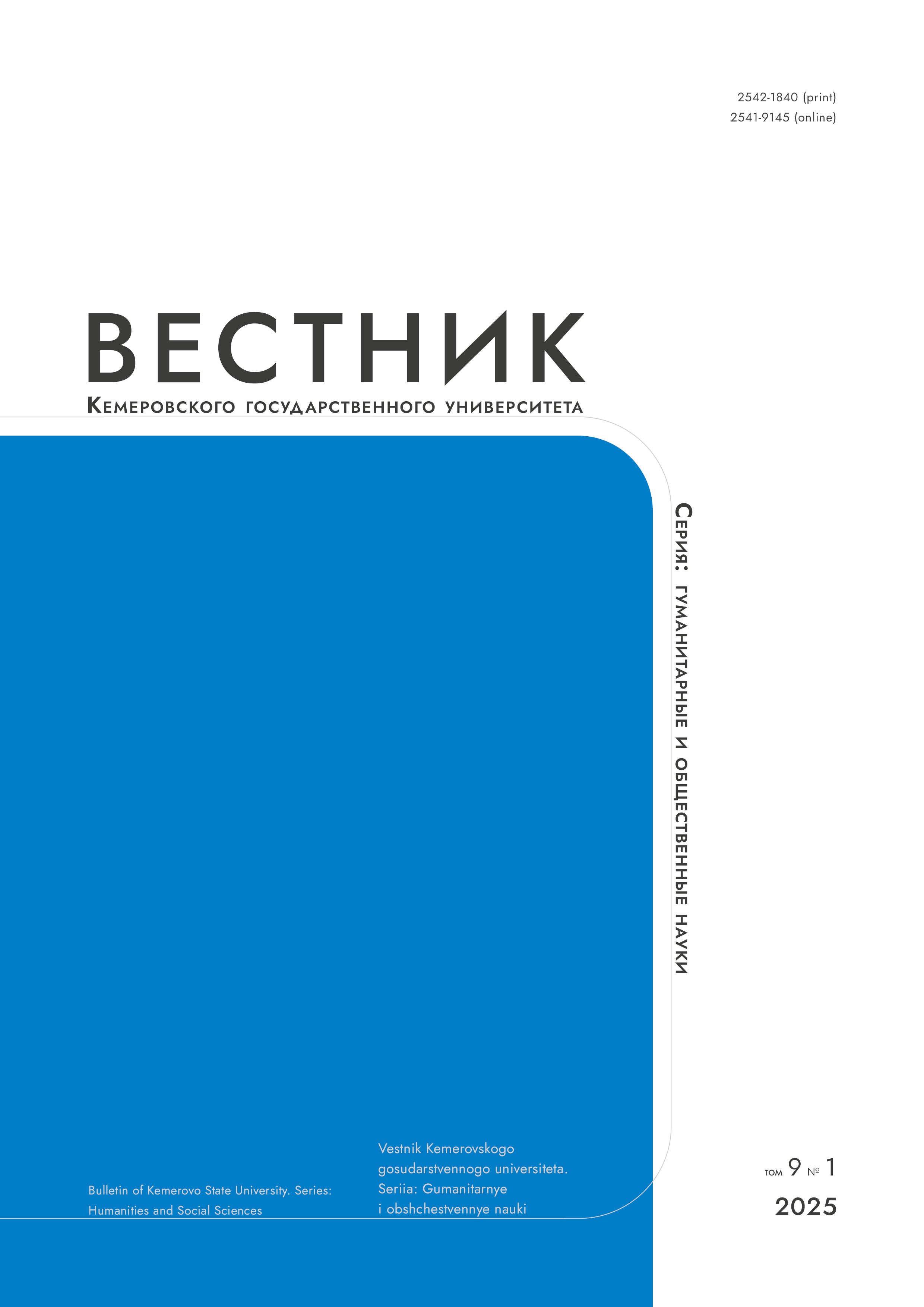Kemerovo, Russian Federation
Kemerovo, Russian Federation
The research featured various theoretical approaches to understanding coherent speech as a complex process in psychological and pedagogical aspects. The article focuses on characteristics of coherent speech in primary school children with normal speech development vs. those with hearing impairment. The subject of the research was the technology of coherent speech development in hearing-impaired primary schoolers. The research objective was to identify, prove, and verify the possibility of developing coherent speech in primary school children with hearing problems. A set of experiments measured and described the qualitative and qualitative parameters of coherent speech in primary school children according to specific auditory analyzer deficits. Coherent speech in hearing-impaired primary school children revealed a variety of speech disorders, which manifested themselves in a different ratio of semantic and lexical and grammatical errors at the sentence and text level. The authors propose several technologies of coherent speech development, including picture-aided storytelling, making riddles, fairy tales, and stories based on personal experience. The research proved that the coherent speech development methods should take into account the specifics of hearing impairments.
coherent speech development technology, auditory analyzer deficits, semantic side of speech, lexical-grammatical side of speech, cognitive process
1. Shafigullina A. G. The pedagogical support of teaching children with hearing impairments at the lessons of speech development. Theory and practice of education in the modern world: Proc. Intern. Sci. Conf., St. Petersburg, February 20-23, 2012. St. Petersburg: Renome, 2012, 272-274. (In Russ.)
2. Vygotskii L. S. Collected works. Vol. 4: Child psychology. Moscow: Kniga po trebovaniiu, 2013, 432. (In Russ.)
3. Leushina A. M. The development of coherent speech in preschoolers. Uchenye zapiski LGPI im. A. I. Gertsena, 1941, 35: 27-71. (In Russ.)
4. Sokhin F. A. Psychological and pedagogical bases of speech development of preschoolers. Moscow: MPSI; Voronezh: MODEK, 2002, 221. (In Russ.)
5. Boriakova N. Iu. Pedagogical systems of training and education of children with developmental disabilities. Moscow: AST; Astrel, 2008, 222. (In Russ.)
6. Beltiukov V. I. Ways to study the mechanism of speech. Defektologiia, 1984, (3): 24-30. (In Russ.)
7. Bykova L. M. The development of coherent speech of deaf primary school students. Moscow: Prosveshchenie, 1989, 143. (In Russ.)
8. Lebedeva I. N. Coherent speech: speech in communication and speech in activity. Spetsial'noe obrazovanie, 2011, (4): 138-166. (In Russ.)
9. The problems of speech development of preschool children and primary school children, ed. Shakhnarovich A. M. Moscow: INPO, 1993, 183. (In Russ.)
10. Korovin K. G. Methodological foundations of personality formation of a hearing impaired student in the educational process. Defektologiia, 2002, (3): 21-24. (In Russ.)
11. Solovev I. M. Psychology of cognitive activity of normal and abnormal children. Moscow: Prosveshchenie, 1966, 224. (In Russ.)
12. Levina R. E. Pedagogical issues of speech pathology in children. Spetsialnaia shkola, 1967, iss. 2, 121-130. (In Russ.)
13. Domracheva L. V. Features of dialogical speech in junior schoolchildren with impaired hearing. Koncept, 2018, (V8): 20-25. (In Russ.) DOI:https://doi.org/10.24422/MCITO.2018.V8.15631
14. Maltseva I. A., Morozova I. S. Features of coherent speech of primary school children with hearing impairments. Molodoi uchenyi, 2019, (20): 492-493. (In Russ.)
15. Glukhov V. P. Formation of coherent speech of preschool children with general speech underdevelopment, 2nd ed. Moscow: ARKTI, 2004, 166. (In Russ.)


















